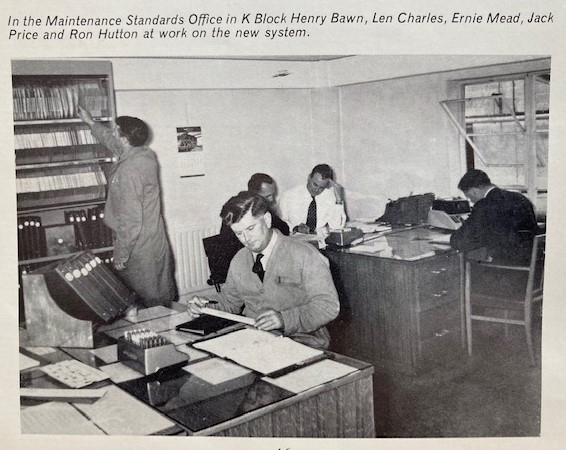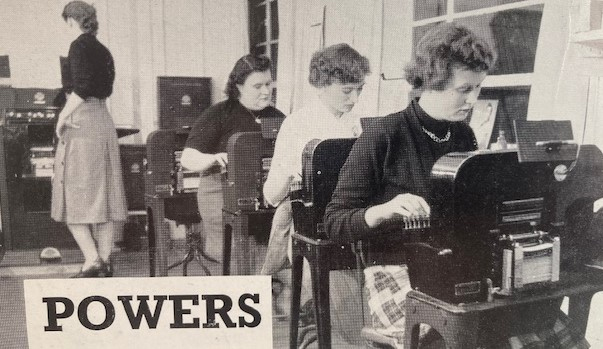And you had to work out whether anything was overdue, or very overdue, whether it was going to have to go to legal proceedings and that all had to be put in separate little boxes on the statement. And you had to do all that by hand and a lot of it in your head. Before I left you had the first type of adding machine which had a paper roll at the back. Numbers nought to nine and a handle. So every time you put in a number you had to pull the handle down and that would record it on the paper at the back. That was the rudimentary adding machine.
[Julia, Morlands]
We used to have to come across the road if we wanted to do any photocopying or things like that. We actually had a printing department if you needed anything printed on their own headed paper – you know, order forms and things like that. And they would do all your photocopying for you, so you just had to go over the road put a little note on, 100 copies, leave it in the tray and then go back later.
[Wendy M, Morlands and Baily’s]
I was PA to the director. I was sent to a special secretarial college in Bristol, and put up in the YMCA. I came bottom all the time! Eventually I qualified, and when Mr Morland would dictate a letter, I’d give him a letter that had so much Tipp-Ex on it that it couldn’t be folded!
[Martin, Morlands]
I suppose when you were older you had to keep your nose to the grindstone and get on with your work, and we only had a quick chat if the boss went out for something. But we noticed that these young girls would talk about what they did the night before or what they watched on telly, even when the boss was there. And I was sort of over them, and I used to say, girls you know, we’ve got a deadline to meet.
[Gloria, Baily’s]
There was no real computers at that time but there was a computer room down, down sort of in the middle of the factory where there were guys with long hair and nobody really knew what they did. But it had big, big wheels, like the size of, you know about a meter across.
[Tim, Morlands]

Photo: Morlands Magazine, Summer 1963
They paid you – I think it was about £6 a week they paid – and you went to college for a year but the terms were that you came back and worked in the factory, in the offices, during the college holidays.
[Caroline T, Morlands]

Photo: Morlands Magazine, Spring 1953

